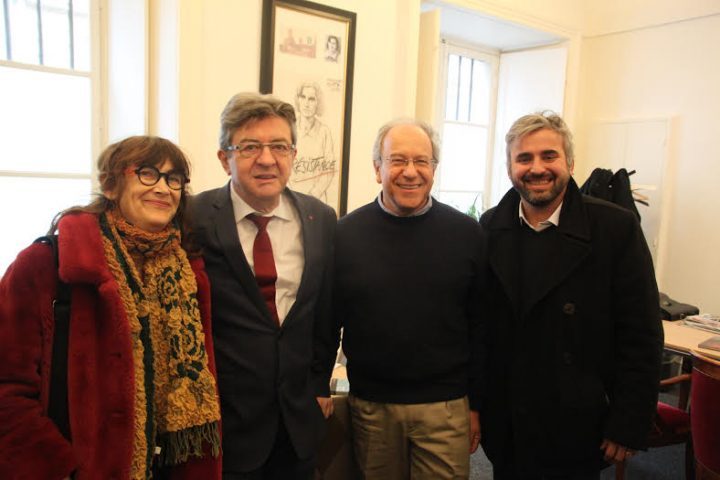Preparations for the European Humanist Forum [EHF] are gathering pace and every day we’re receiving information about new initiatives, more confirmations of supporters and more confirmed speakers. Among the latter, Tomás Hirsch, life-long humanist from Chile, twice presidential candidate, author of the book “The end of prehistory: a path towards freedom”, and recently elected member of the Chilean Congress for the Humanist Party, in the “Broad Front” parliamentary bloc.
We recently had the chance to speak with “Tomy” in his travels through Europe, in meetings with politicians and in less formal gatherings with friends and supporters of the Broad Front.
EHF2018. The Forum’s slogan is “what unites us towards the Universal Human Nation.” What is, for you, “what unites us”?
Tomás Hirsch: What unites us is a profound conviction that human beings can live in better conditions than those given by the System we live in which is violent, inhuman, insensitive and without much solidarity. What unites us is the outrage in the face of this mistreatment. What unites us is the rebellion against having to accept that the years go by and yet the answers we need so that millions of human beings can live with dignity are postponed. And, above all, what unites us is the certainty that we can’t change things alone, that we must work shoulder to shoulder with all those who coincide in these hopes and dreams.
EHF. Tomy, you have dedicated much of your life to humanism and politics. What role does humanism have in the creation of the Universal Human Nation? And what is the role of politics?
TH: The Universal Human Nation is a good synthesis of the Purpose that drives us forward. A nation which is diverse, multi-ethnic, multi-colour, multi-language, a nation multiple in all senses. In which no human being is below another. In which diversity is valued as a contribution to the common task. Humanism aspires to collaborate in the direction of creating this Nation and it does so through many different ways that aim towards a simultaneous personal and social transformation. For humanism, the overcoming of the conditions of social violence is not possible if it is not accompanied by a process of overcoming personal violence, the violence that we exercise over other human beings.
Politics, so distorted from its function in recent decades, and even more so in recent years, has a fundamental contribution to make towards the creation of a Universal Human Nation. We’re talking about politics in its true sense, as an action at the service of the community, contributing to organising and strengthening the social fabric.
EHF: You’re going to participate in the group Social and Political Convergence. Why do you think this is an important subject to talk about?
TH: Because of what I said before. I am convinced that political action must be undertaken in convergence with different organisations who, without losing their own identity, have the capacity to work together with others. Convergence always implies that we must face up to those who are different, in other words, those who are not the same as I am. In this sense, convergence is an eminently human action because it’s not mechanical, it’s intentional, it’s something we want. It doesn’t happen automatically or mechanically. It implies an explicit intention of “going towards others”. And this is precisely what is needed today. To leave individualism and fragmentation behind and go towards constructing something in which everyone can contribute their virtues in a common direction.










